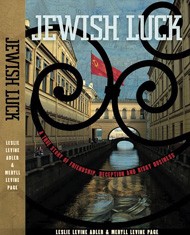With her new novel A Place For People Like Us, Danila Botha demonstrates her mastery in creating imperfect protagonists. While Hannah’s quest for self-actualization and meaning acts as the book’s narrative anchor, each member of the supporting cast comes with a strong individual voice, story, and demand for attention.
Hannah’s journey from a couch-surfing art student to the emerging matriarch of a wealthy, leading Orthodox family in Toronto is understandably uneven. At times Hannah jumps effortlessly over the obstacles created by others while struggling to move past the roadblocks she has made for herself. Her difficulties in accepting her capacity for agency and emotional maturity are reflected in the story’s irregular timeline; Botha highlights that the process of self-discovery isn’t linear.
With this in mind, readers who are hoping for a clear redemption arc are going to be disappointed. Engaging fully with this book requires a certain amount of comfort with toxic relationships and patience with people who make questionable personal decisions. It is not necessary for readers to have any familiarity specifically with Toronto or its Jewish community to follow the story, but some knowledge of Orthodox social structures, particularly related to conversion and kiruv, will help readers to fully appreciate the novel’s texture.
A Place For People Like Us challenges readers to consider what it is to construct and reconstruct the self in a web of intricate interpersonal and societal relationships. Botha’s gift is in creating characters with whom readers empathize, and making them question which version of each character is the one who most deserves their support. Ultimately, A Place For People Like Us will hold up a mirror to the ways in which readers find their own places in this world.





